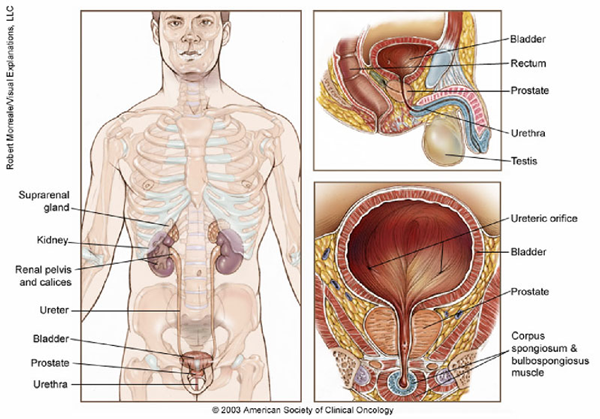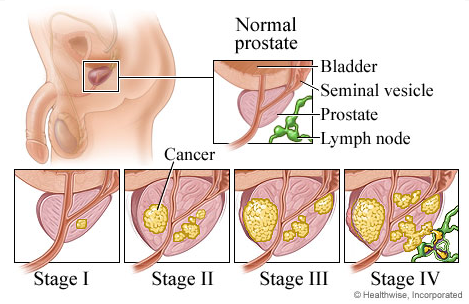


Prostate Cancer is the most common type of cancer diagnosed in Canadian men today, and is one of the leading causes of death from cancer in men.
Who is at Risk for Getting Prostate Cancer?
A family history of prostate cancer may increase the individual's risk of developing the disease. Studies also suggest a diet that is high in red meat, dairy products and saturated fat may also increase the risk of developing prostate cancer.
When Prostate Cancer is in its earliest most treatable stage there are generally no symptoms. However, some men may experience urinary difficulties, or pain in the lower back or hip area.
What is the Prostate?
The prostate is a male only sex gland that is about the size of a walnut, located just below the bladder and in front of the rectum. It surrounds the urethra, which is the tube that carries urine from the bladder to the end of the penis. The prostate gland produces prostatic fluid that forms part of a man's semen.
Generally in the earliest most treatable forms of prostate cancer, there tends to be no or very few symptoms.
How is Prostate Cancer detected?
Two tests, the DRE (digital rectal examination) and the PSA (prostate specific antigen) blood test may detect changes in the prostate gland.

